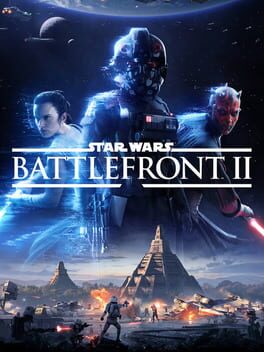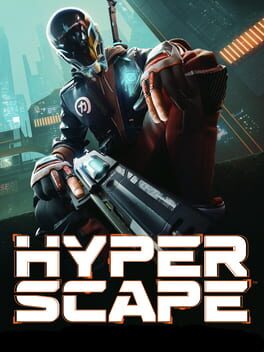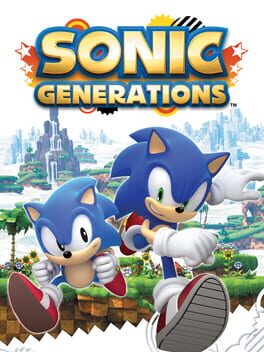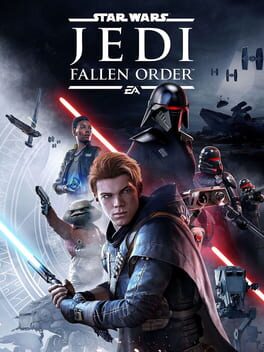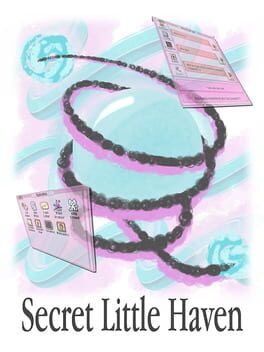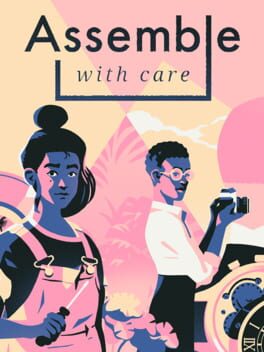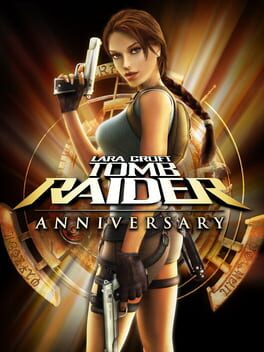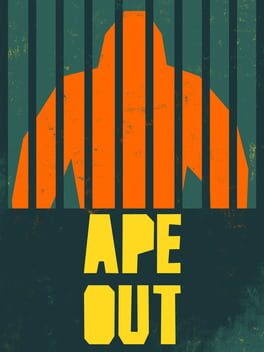triales
BACKER
This review contains spoilers
campaign spoilers
Can't take the single player campaign seriously outside of it being training for multiplayer. Its "greatest hits" (in the sense of playable characters) format can be fun, but there is no time given to sit with any emotional beats (which on its own barely exists, barring the context given for Versio's desertion and Versio embracing Del in the climax). I had no desire to play the Resurrection campaign considering the little interest I had in Versio as a character. The multiplayer acts as a perfect casual experience though and remains fun even when you're not playing as a Hero or a Villain, especially with the wide amount of movement allotted to Aerial reinforcements.
Can't take the single player campaign seriously outside of it being training for multiplayer. Its "greatest hits" (in the sense of playable characters) format can be fun, but there is no time given to sit with any emotional beats (which on its own barely exists, barring the context given for Versio's desertion and Versio embracing Del in the climax). I had no desire to play the Resurrection campaign considering the little interest I had in Versio as a character. The multiplayer acts as a perfect casual experience though and remains fun even when you're not playing as a Hero or a Villain, especially with the wide amount of movement allotted to Aerial reinforcements.
2020
tech test version released on july 2nd
Echoes of how Apex may have felt if double jumps and unlimited slideboosts were brought over from Titanfall 2, but also has its own identity as a full-blown arena shooter. Extremely promising, but still needs more work in balancing. The crown section being only 45 seconds makes little sense considering how many hack combos can allow you to run away with little to no issue until the timer ends.
Echoes of how Apex may have felt if double jumps and unlimited slideboosts were brought over from Titanfall 2, but also has its own identity as a full-blown arena shooter. Extremely promising, but still needs more work in balancing. The crown section being only 45 seconds makes little sense considering how many hack combos can allow you to run away with little to no issue until the timer ends.
2011
A very fun campaign, but I'm still baffled by how its ending throws out the kinetic designs of previous levels (which even includes certain boss fights) for an experience that almost serves to punish you for going at full speed with rings being unrecognizable until the last second before miss. The best starting point I could ask for with Sonic after playing the series on-and-off lies in this though.
"what do you think the odds are?"
"my money's on you, kid."
Sometimes suffers from its desire to ensure that it receives the length of other AAA games, but I was able to connect. I had little to no desire to explore past planets in the second half considering how tedious planet navigation is along with upgrades being less useful after my late-game switch to Story Mode, a move I probably should have made much earlier considering the shakiness of its combat. This is part of a series that needs time to find its footing, but I'm still concerned as to if its sequel will be able to break formula and explore something new.
"my money's on you, kid."
Sometimes suffers from its desire to ensure that it receives the length of other AAA games, but I was able to connect. I had little to no desire to explore past planets in the second half considering how tedious planet navigation is along with upgrades being less useful after my late-game switch to Story Mode, a move I probably should have made much earlier considering the shakiness of its combat. This is part of a series that needs time to find its footing, but I'm still concerned as to if its sequel will be able to break formula and explore something new.
2015
"you're killing me here. how about black? can't go wrong with a sharp, black suit..."
"i'm not feeling black or white these days. this is where i'm at right now. i chose it myself. i'm making a fresh start."
I think I would be so much more connected to the story had I not gone through the roughness of its combat for 30+ hours. The finale is tediously padded with enemies equipped with a gun spawning in every place imaginable just to add difficulty. Yet I was pulled back in just when I thought I lost my patience by an epilogue that cemented the caringness of each character while embracing every change each has gone through in finding their independence. It's enough for me to at least continue the series.
"i'm not feeling black or white these days. this is where i'm at right now. i chose it myself. i'm making a fresh start."
I think I would be so much more connected to the story had I not gone through the roughness of its combat for 30+ hours. The finale is tediously padded with enemies equipped with a gun spawning in every place imaginable just to add difficulty. Yet I was pulled back in just when I thought I lost my patience by an epilogue that cemented the caringness of each character while embracing every change each has gone through in finding their independence. It's enough for me to at least continue the series.
2018
"she'll figure it out..."
The third act leaves something to be desired in how tedious its puzzles are, but it's difficult not to feel its sincerity even through its rough parts. Its intertwinement of fanwork and reality helps bring the core structure above what could have been a superficial appreciation of the early internet's aesthetics (which Emily is Away unfortunately comes closer to for me, although in the context of a different time period) and instead understands how queerness has been redefined in certain ways with the spread of digital fandom. I would love to see a sequel with the same characters.
The third act leaves something to be desired in how tedious its puzzles are, but it's difficult not to feel its sincerity even through its rough parts. Its intertwinement of fanwork and reality helps bring the core structure above what could have been a superficial appreciation of the early internet's aesthetics (which Emily is Away unfortunately comes closer to for me, although in the context of a different time period) and instead understands how queerness has been redefined in certain ways with the spread of digital fandom. I would love to see a sequel with the same characters.
2019
A very good exploration of family history and the course of drifting away from it. It serves as a recognition of the fragility of relationships through the dissection of objects whose existence are taken as a given.
Broken watches freeze time as struggles over the future become an unspoken presence. How can I continue to function as the confident and caring figure I was supposed to be when time moving forward is something that will take away? Voices are lost as record and cassette players only give out silence. Will I still be able to remember my mom's singing when she tucked me into bed at night, which are now nights that only contain the hum of my whirring fan?
Maria's narration doesn't have too much impact on its own, and could potentially be a distraction from the overall story at times. It's difficult however to only focus on the dissection mechanics with the care that is given to each character.
Broken watches freeze time as struggles over the future become an unspoken presence. How can I continue to function as the confident and caring figure I was supposed to be when time moving forward is something that will take away? Voices are lost as record and cassette players only give out silence. Will I still be able to remember my mom's singing when she tucked me into bed at night, which are now nights that only contain the hum of my whirring fan?
Maria's narration doesn't have too much impact on its own, and could potentially be a distraction from the overall story at times. It's difficult however to only focus on the dissection mechanics with the care that is given to each character.
There's an interesting focus on puzzles and exploration that surprised me coming from only playing the 2010s series. I think, at least for what I can recall from the other new entries since I haven't had any time yet in seeing Shadow of the Tomb Raider's world, that the wonder and mystery of mythical environments explored are found in greater amounts here compared to the rebooted series.
It could be simply the contrast of the bright lighting compared to the often darker environments in the new series that makes me feel this way, but I find it hard to ignore how the original Tomb Raider embraces the mythicism and awesomeness of abandoned environments. A couple of examples could be the mix of natural sunlight and decayed columns in St. Francis Folly and the lusciousness of The Lost Valley's wide open grasses. As much as I was frustrated with the controls at times having little to no connection with the camera's perspective (sometimes kicking my progress in a puzzle away), the wonder of the environments in a way kept me going.
As much as I still enjoy the 2010s series, I can't help but now have desire to see a Tomb Raider that expands on the wonderful mix of mythical environments and puzzles found in Anniversary (although technically rooted from the original PS1 game) while also giving time for character exploration that is seen in some ways in the new series.
It could be simply the contrast of the bright lighting compared to the often darker environments in the new series that makes me feel this way, but I find it hard to ignore how the original Tomb Raider embraces the mythicism and awesomeness of abandoned environments. A couple of examples could be the mix of natural sunlight and decayed columns in St. Francis Folly and the lusciousness of The Lost Valley's wide open grasses. As much as I was frustrated with the controls at times having little to no connection with the camera's perspective (sometimes kicking my progress in a puzzle away), the wonder of the environments in a way kept me going.
As much as I still enjoy the 2010s series, I can't help but now have desire to see a Tomb Raider that expands on the wonderful mix of mythical environments and puzzles found in Anniversary (although technically rooted from the original PS1 game) while also giving time for character exploration that is seen in some ways in the new series.
2019
